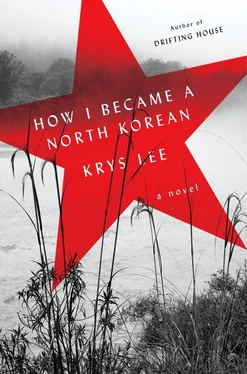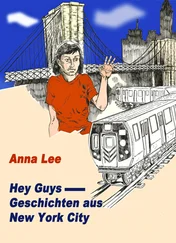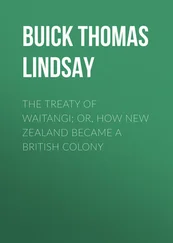I’ve lived an unusual young life, some would say an extraordinarily difficult life, but I was a typical mother. I had all kinds of dreams for my baby. I had a name picked out if she was a girl and another name picked out if he was a boy, though I was sure she would be a girl. I worried about how her head would emerge from my small body unhurt, how to bathe such a fragile creature. It was the most important thing that had ever happened to me, my living, beating secret that I could share with no one. My baby, only a faint murmur in my belly, but already I felt less lonely.
So I wasn’t as frightened as I should have been when the gathering clouds settled over us and Seongsik’s people pretended not to stare while they stared at me. Only a man the others called deacon greeted me warmly, clasping his hands around mine.
“You’ve traveled a long way,” he said, though it was only across the river. “You must be tired.” Tears crowded my eyes at his hands, their warmth.
A gray-haired matron who smelled of dried mushrooms clutched her purse to her chest as she walked my way, as if I might steal from her.
She said, “It’s that awful one-child policy,” in informal Korean, as if I were a child she was speaking to or a work hand she had hired. “Perfectly good men like my son have no choice but to marry women like you.”
“And what exactly is wrong with someone like me?” I smiled sweetly. The old rag of a woman wouldn’t have survived five minutes of my former life.
“Eomeoneem, you promised,” Seongsik whined to his eomma, suddenly sounding like a ten-year-old. “She’s what I want, my Jangmi.”
Like that, I was given my new name: Jangmi. Rose, a lovely, thorny name that suited me. So easily, one life ended and another began.
He stroked his eomma ’s hand, which was rough from farm-work, more in the way of a lover than a son. I didn’t like seeing that. No woman wanted her man beholden to his eomma, even if she did live far away. He said, “Anyway, she’s beautiful like I said, isn’t she? I know how to pick them.”
“She’s too pretty.” Her lips pressed together. “Good-looking girls are too demanding.”
When you have nothing, you grow up taking. You steal and cheat if you have to. What I knew was that you never got what you wanted if you didn’t take it, so I took the first thing I saw: I plucked the pink carnation from my mother-in-law’s buttonhole and held it to my nose.
• • •
That was the way I was. Not soft, though I looked like I would be soft. I was all gristle and bone and rage. All muscle and metal. I believed I had experienced everything, though I had never been in love.
Numb to pain and fear was how I wanted to be as we drove afterward in a boxy red car to Seongsik’s apartment, passing concrete buildings that I couldn’t tell apart from one another. The skyline blinded me with its glowing signs — neon, he called it. But it was the hundreds of motorcycles flying past that I couldn’t stop staring at. I promised myself that I would become like one of those women who looked so fearless, so free, riding alone on the enormous steel machines.
“Here we are!” Seongsik rushed to open the car door for me.
Dusk reflected off his apartment building and made the windows opaque. This is where you belong, the building’s yellow facade seemed to say to me. This is all you’re worth, the puddle of urine we passed on the stairwell reminded me. We followed the smoke stains that wound straight up four flights of stairs. All at once the great, terrible China seemed to declare, I’m a building you’re unable to leave, and you, you belong to me. I pushed those voices away; I reminded myself that the grim walls only obscured the somewhere beyond. Beyond. It was another name for hope.
I didn’t know how to read this world yet. So when Seongsik, still a rabbit-faced stranger to me, opened the front door and the dark hall flooded with chanting, deep and otherworldly, I didn’t understand that this was choral music. In the swell of sound that ballooned out of the apartment, I heard the sadness of my eomma, my abeoji. The people and the past I had abandoned. I fled for the stairs we had just climbed up.
“Where are you going?” He seized me by my hair.
I ripped away from him, my scalp burning. A long coil lay limp in his fist. He forced me to the floor by the shoulders, straddled and pinned me to the cement.
“Where do you think you’re going?” he said again.
I pleaded into his face that was tight with disappointment. I choked out, “Don’t you hear them? The voices of ghosts?”
For a man like him, the sight of my retreating back must have been the history of all departing women. Only when I kept explaining did he understand that I was running, but not from him.
“I’m sorry, I’m so sorry.” He let me go.
Inside the apartment, after he turned the music off and brewed a pot of jasmine tea, he broke the silence. “It’s Bach, choral music. I had it set on repeat, for your arrival. Don’t be scared.”
“Choral music. Bach,” I repeated, trying to learn the new world as quickly as I could. One of my hands curved around my unborn baby who would never meet her real abeoji, an official, a married man who wouldn’t have let her live if he had known about her. I thought about my eomma and sank to the couch as far from Seongsik as I could manage. He was as nervous as I was and gripped his teacup as if it were a crowbar.
He gulped down the tea. “Everything in here’s quality. I only want the best.”
Looking at the man whose square teeth protruded over his lip as he smiled, I wanted desperately to reverse time. To be reborn into a ganbu ’s family and go to special private schools. Eat red meat every week and enter the University of Pyongyang and never have to think about crossing into China. But my family’s lowly seongbun —my abeoji a coal miner and South Korean relatives staining my eomma ’s side — meant I was barred from all opportunity. I knew this much: I would be sent to jail or, worse, the camps in the far north if I was caught. The authorities would assume my baby was of impure Chinese blood and murder her.
I moved closer to Seongsik.
He showed off the solid oak furniture and the kitchen counter he claimed competed with the most elite homes in Pyongyang, as if he had personally visited them. The indoor flushing toilet did thrill me, but it was the framed picture of Jesus Christ that I remember most vividly. Why was a white man hanging like a powerful politician in his house? I wondered. I was also intrigued, for this man with a tangled brown beard looked homeless, nothing like the dashing men in the smuggled VCD of An Officer and a Gentleman, or the cruel American soldiers in posters stabbing children with bayonets. Not powerful and kind, like the portraits of the Great Leader and the Dear Leader that hung in every house across the river, though even then I thought that a sack of rice was more useful than their portraits. This white man looked weak; he looked so ordinary. So this was the real American!
Seongsik took in all his belongings, including me, and rubbed his stomach as if he were full. “And this is our drinking water,” he said in front of a plastic tank standing on four legs.
“What else would you do than drink it — bathe in it?” I said, as if such a machine didn’t surprise me.
But when he pressed the blue knob at the top, saying, “Red’s for hot, be careful,” I wasn’t prepared for the water shooting out in a remarkable, reliable stream. It was the promise of better things. My future would begin with this owlish man abandoned by his Chinese wife. My baby would start her life here, and more.
Читать дальше












